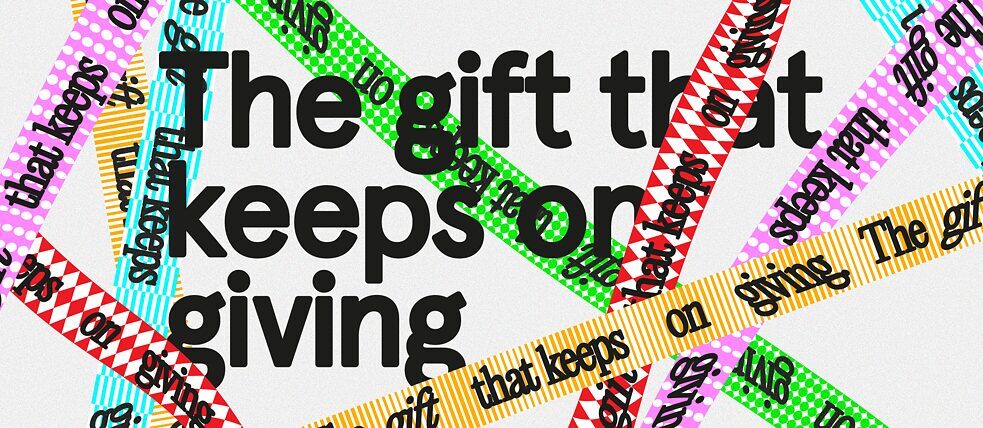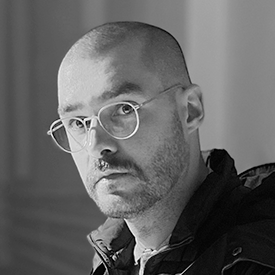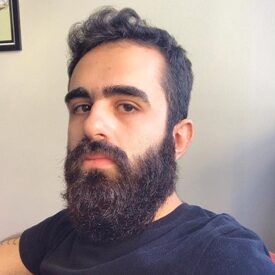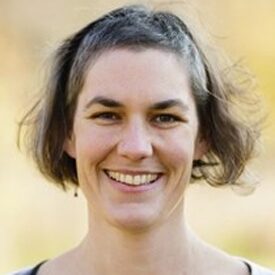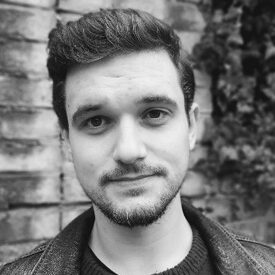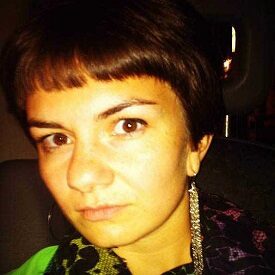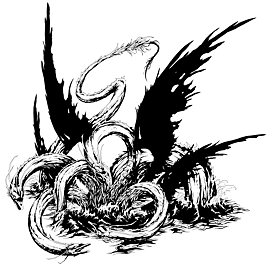SERIES AMBITION
The ambition of Goethe-Institut Bratislava's lecture series The Gift That Keep on Giving is to investigate gift exchange as a latent promise of a post-capitalist economy-to-come, tailored for the 21st century's condition of the deep human entanglement with the planetary reality. While last decades marked tremendous intellectual development with respect to historical, political, and ecological conceptualisation of this entanglement, its economic underpinnings remain unclear. But one thing is clear for sure: the reality of a late capitalist platform economy, which opens towards a range of post-capitalist futures spanning new models of exploitation as well as those of planetary cooperation. Under such circumstances, can humanity as a biological species give itself the most generous of all gifts it seems to be capable of, the gift of just, dignified, autonomous and communal existence?
AUDIENCE & QUESTIONS
By its definition, Goethe-Institut Bratislava supports the development of cultural practices in the broadest sense, spanning contemporary visual and performative arts, design, architecture, or digital media. The Gift That Keeps on Giving series understands workers in these fields as stakeholders in crafting the future economies of gift and cooperation. Since the idea of ‘sharing economy’ has been largely monopolized by corporate digital platforms, the institutional framework of cultural practices must be rethought, so that it points beyond cooperation and gift exchange as just an adaptation to precarious conditions, and so that it does not turn both terms into an alibi of institutionalized economic austerity. That brings some crucial questions into the foreground: What are the concepts and instruments the cultural institutions and workers need to act prefiguratively in the development of new economic models? What paradigms of such action are available across disparate geographies, histories, and cultural contexts?
THE BIG PICTURE
The emergent big picture the series provides is both planetary and situated in its scope. It pleads for a larger integration of heterodox economic thinking into the education of cultural workers, and into their institutional practice. In order to do so, the series traces alignments between insights of theorists, anthropologists, economists as well as cultural organizers, that together capture what can be expressed by a charming, composite German expression Gelingensbedingungen – the landscape of conditions of possibility of a prefigurative pursuit. As this landscape unfolds before our eyes, one may even discover these conditions of possibility has been already here for a very long time, perhaps even from the beginning of time’s counting.
Events
All events are held in English online via Zoom
EVENT #1: STOFFWECHSEL
JUNE 14TH 2022, 5PM CEST
Online lectures by Eva Fraňková, Rafael Moscardi Pedroso and Lukáš Senft
Annotation: In German, ‘Stoffwechsel’ means literally ‘material exchange’, and it is often translated to English as ‘metabolism’. This event will cover two perspectives on connotations of exchange and metabolism, to build theoretical foundations that lead to appreciation of more-than-human economy. We will see how to approach gift economy from the vantage point of Kojin Karatani’s ‘The Structure of World History’ (2011), and we will also get familiar with current perspectives on socio-economic metabolisms in ecological economics, as well as on the anthropology of gift economies in Eastern Europe.
EVENT #2: GIFT PROTOCOLS
OCTOBER 18TH 2022, 4PM CEST
Online conversation with Black Swan (Laura Lotti, Penny Rafferty, Calum Bowden, Leïth Benkhedda)Annotation: The eschatology of Kojin Karatani’s world-historical perspective lies in the promise of a gift-economy-to-come, the second coming of communal mode of human existence that overtakes and transcends all earlier modes of exchange. The open question remains: What platform or medium can facilitate this kind of communal economy? Together with Black Swan collective, we will discuss and test their proposals of technological protocols for implementation of alternative gift economies into art making.
EVENT #3: WHEN IS A GIFT NOT A GIFT?
NOVEMBER 2022
Online conversation with Victoria IvanovaAnnotation: Building on our previous engagement with protocols for gift economies, we will dedicate this session to institutional aspects of alternative economic models in the context of artworld. The narratives of gift economy oscillate today between DYI ethos on the one hand, and corporate capture on the other hand. To better understand the potentials of the gift for the cultural sector, Victoria Ivanova from Serpentine R&D platform will discuss and demonstrate their efforts to create future institutional ecologies around unorthodox economic models.
EVENT #4
JANUARY 2023
Wrap up commentary by Lukáš Likavčan, accompanied by audiovisual work by Sahej RahalAnnotation: The final session of ‘The Gift That Keeps on Giving’ will wrap up with a commentary by its curator Lukáš Likavčan, who will synthetise the intellectual threads of the past sessions into a philosophical concept of the Planetary, which represents the generic space of metabolic exchange. This commentary will be accompanied by an audiovisual work by Sahej Rahal.
